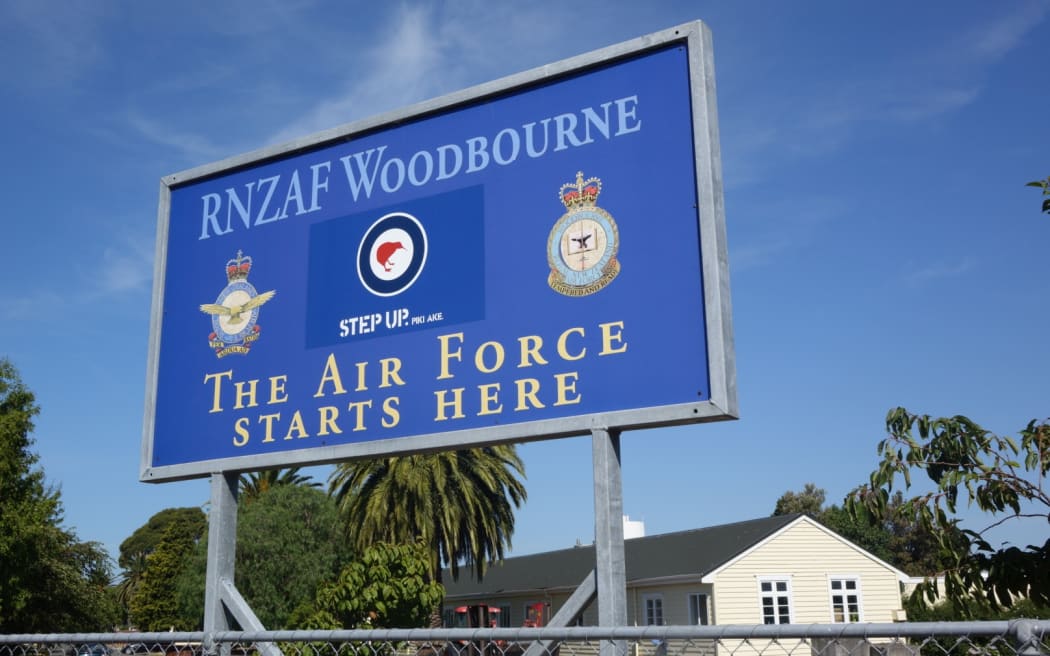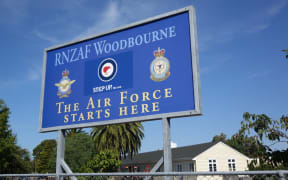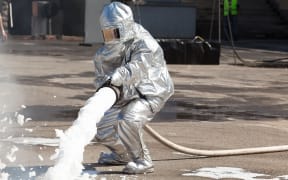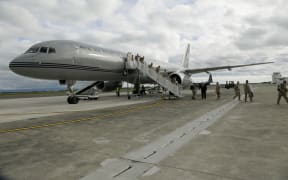Ohakea Air Base has simply pushed farmers concerns over their contaminated properties on to government ministries, farmers say.

The RNZAF Woodbourne Airbase near Blenheim. Photo: RNZ / Tracy Neal
Seven properties have been found to have contaminated drinking water.
Seven among 64 properties near airforce bases, tested after the Defence Force discovered chemicals used in firefighting foam had leached into soil and water, have been found to have been contaminated.
Farmer Aaron Taylor told Checkpoint that even though one of his farms was flooded regularly by water draining off the Ohakea base, he hasn't been able to get a shallow bore on the property tested.
"The water out of that shallow bore feeds the cow shed which washes the inside of the plant, and it waters the garden and stuff around my house which my kids play in under the sprinkler and stuff, so that was my concern.
"They pretty much just fobbed us off and said 'oh you're out of the testing zone, we don't wanna know."
Mr Taylor said he was told to contact the Health Ministry or the Ministry for Primary Industries.
"When I was a little kid it used to take four or five inches but now it only takes an inch and we're underwater."
Health Minister David Clark said testing showed above acceptable levels of PFOA and PFOS in drinking water at five properties near Ohakea, in the lower North Island, and two near Woodbourne Base, in Marlborough.
"For three of these properties, indications are that it is their primary source of drinking water.
"We know that this will be concerning for these families, and government agencies and local councils will work with them to make sure they have the information and support they need - including the ongoing supply of alternative drinking water," Dr Clark said.
Watch: PFOA and PFOS explained
Affected residents had been provided bottle water while they awaited test results.
Dr Clark said people were being urged to drink that and not to drink from their bores.
"The advice of health officials remains that there is no acute health risk, but a precautionary approach is being taken because the long-term effects are uncertain."
The Defence Force is visiting residents today and will discuss a longer term solution, such as installing water tanks.
The contaminated drinking water is sourced from the ground through bores.
Testing began in December, even though the Defence Force was told that the levels of chemicals present at Ohakea airbase in the Manawatu exceeded acceptable levels in June.
The Defence Force stopped using the foam in 2002.
The chemicals do not pose an immediate health risk, but long-term consumption has been linked to increased cancer risk, high cholesterol, a lowered immune system, and issues with babies.
The Environmental Protection Authority is also investigating the wider use of the foam after Auckland Airport said it was still using it late last year despite it having been banned in firefighting standards in New Zealand since 2006.





